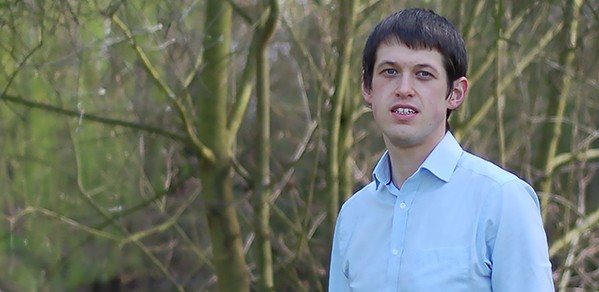
Dr John Biggins, Lecturer in Applied Mechanics, has been announced a recipient of the UK Research and Innovation’s (UKRI) first Future Leaders Fellowship.
The unique structure of the Future Leaders Fellowship, which is both a fellowship and a grant, will give me the time and resources I need to make machines powered by artificial muscles a reality.
Dr John Biggins
The Fellowship encourages early career researchers to pursue interdisciplinary and business-linked research to tackle pressing global challenges. Dr Biggins is among 41 new fellows who will each benefit from a share of £40 million towards cutting-edge research over the next four years.
Dr Biggins, who is part of the Department’s Mechanics, Materials and Design division, is designing soft, stretchy machines powered by artificial muscles rather than electric motors; technology that could benefit miniaturisation. One example of this is a chip the size of a postage stamp, with valves and pumps made of artificial muscle, designed to test a drop of blood or sequence a genome. Artificial muscles could also be used to create 3D touch displays or switchable braille e-readers.
Dr Biggins’ research will utilise liquid crystal elastomers – soft polymers that look like rubber bands, but which are, in fact, made up of lots of tiny molecular rods. The polymers contract like muscle fibres when they are heated or illuminated.
“This amazing new material really comes to life when you stimulate it, enabling machines that look more like animals than engines,” said Dr Biggins. “Although I have the theoretical mechanics background to design them, I do need new skills and facilities in chemistry and fabrication to actually make them. The unique structure of the Future Leaders Fellowship, which is both a fellowship and a grant, will give me the time and resources I need to make these machines reality.”
Science and Innovation Minister Chris Skidmore said in a speech earlier this month: “Our investment in these Future Leaders Fellows will enable the brightest and best of our scientists and researchers to work with leading lights in industry, to help their research move from the laboratory to the commercial market.”
UKRI Chief Executive Mark Walport added: “The Future Leaders Fellowships offer long-term support for the most talented researchers and innovators. Fellows will be encouraged to be adventurous in tackling tough and important research questions and opportunities for innovation.”
The Future Leaders programme is supported by a £900 million government investment fund over the next three years. It is part of the modern Industrial Strategy – maintaining the UK’s world-leading science base whilst addressing the challenges of tomorrow.

